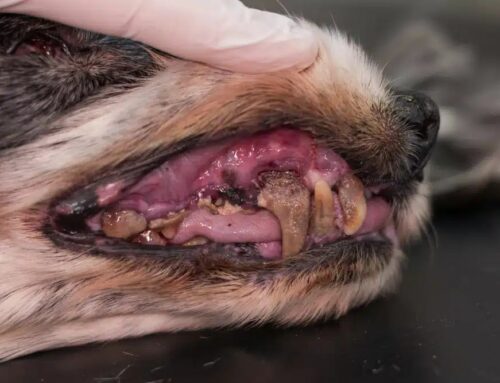Your pets’ wild ancestors learned to hide out when they were ill or injured so that predators wouldn’t take advantage of their weakness. As a result, your domesticated cat or dog instinctively hides or disguises their ailments when they’re not feeling well. To help ensure your pet stays in tip-top health, you need to be able to recognize their illness signs and determine which issues qualify as emergencies and which signs warrant a veterinary exam. Our Central Kentucky Veterinary Center team describes pets’ illness or injury signs that you should never ignore—no matter whether they are experiencing an emergency or need an exam.
Pet emergencies
To determine whether your pet needs emergency veterinary care or a veterinary exam, you need to recognize their illness or injury signs. Your pet needs emergency veterinary care if they exhibit any of the following signs:
- Severe bleeding or bleeding that doesn’t stop within five minutes
- Choking, difficulty breathing, or continuous coughing and gagging
- Coughing up blood, blood in the urine, or bleeding from the nose, mouth, or rectum
- Inability to urinate or defecate, or obvious pain associated with trying to do so
- Eye injury
- Suspicion or knowledge of poisoning with a toxic substance such as antifreeze, chocolate, xylitol, nicotine, or rodent poison
- Seizure and/or incoordination
- Bone fracture or severe lameness or inability to move one or more legs
- Obvious pain
- Extreme anxiety
- Heat stress or heatstroke
- Excessive vomiting or diarrhea more than twice in a day
- Refusal to drink for a day or longer
- Unconsciousness
Urgent illness or injury signs in pets
Some pet illnesses or injuries require veterinary care even though their signs do not indicate they are experiencing an emergency. Schedule your pet’s veterinary exam with our Central Kentucky Veterinary Center team if they exhibit the following signs:
- Itching and scratching — Irritated skin that causes constant scratching, hair loss, or skin color or texture changes can signal allergies, infections, or systemic diseases that affect skin and coat health. Watch out for fleas and ticks, which are prevalent in spring and summer, and consult with our veterinary team, so you and your dog or cat can avoid an infestation and the diseases these parasites carry.
- Weight loss — Unexplained weight loss is a cause for concern because your pet’s condition may indicate digestive, dental, metabolic, or hormonal problems. If your pet loses more than 10% of their body weight, schedule a checkup to rule out those issues and other medical conditions, such as cancer or kidney disease, that could make your pet lose their appetite.
- Respiratory issues — Sneezing and coughing, especially if these signs are new, frequent, or increasing, could indicate a respiratory infection, kennel cough, or an airway obstruction. Allergies to environmental allergens, such as pollen, could also be responsible.
- Excessive thirst — If your pet begins drinking a lot more water than usual, they may be experiencing increased thirst as a medication side effect. On the other hand, your pet may have a serious underlying condition such as diabetes or kidney disease. If your pet’s thirst level remains excessive for several days, consult our team.
- Dental problems — Pets, like people, can suffer from oral issues, including broken teeth and roots, abscesses, infected teeth, oral cysts or tumors, misaligned teeth and bite, palate defects, and more. Periodontal disease is so common that your dog or cat will probably show some signs by age 3. While periodontal disease may seem minor, the condition requires prompt treatment so that it doesn’t cause tooth loss as well as kidney, liver, and heart problems.

- Behavioral changes — Sudden aggression, anxiety, or irritability can signal pain, stress, or an underlying health issue, such as age-related cognitive decline, hormonal changes, or neurologic disease. Stay alert for changes to your pet’s toileting habits, too. If your cat visits the litter box frequently, leaving small amounts of urine or blood in the urine, they likely have a urinary issue. Excessive urine output could signal a hormonal or kidney problem. A dog who frequently begs to go out could have a urinary tract infection (UTI), bladder stones, or an endocrine disorder. Cats who repeatedly eliminate outside the litter box and dogs who use your house as their bathroom likely have a medical or emotional issue.
- Fatigue and lethargy — If you can’t explain your playful pet’s sudden loss of energy, they need a veterinary exam. Extreme lethargy in dogs could indicate heart or liver problems, diabetes, or hypoglycemia. A lethargic cat may have a condition as simple as a recent vaccination side effect or something as serious as cancer. Your cat might also have low blood sugar, anemia, a lower UTI, or another underlying medical condition.
Annual wellness checks are vital because they give our team a chance to detect a pet’s health issue early and start treatment before the condition becomes a serious problem. Schedule your pet’s appointment with our American Animal Hospital Association (AAHA)- accredited Central Kentucky Veterinary Center team.







Leave A Comment